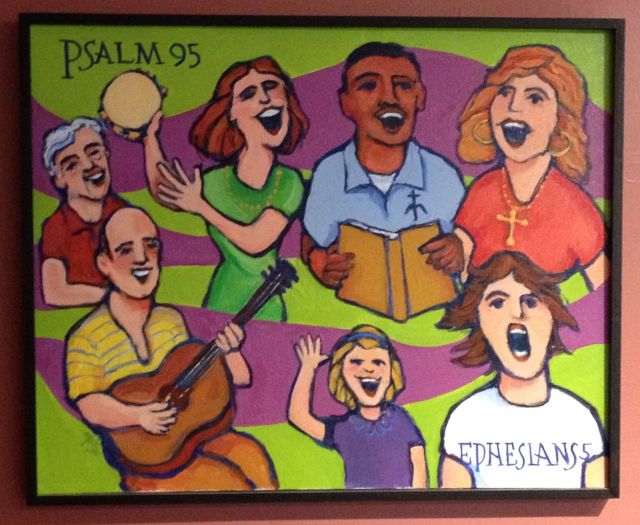Document Type
Musical Composition
Publication Date
10-1-1923
Loading...
Publication Source
Songs Marianists Used To Sing, edited by Brother Eugene Frank, S.M., page 15.
Description
This hymn is a classic example of the "alma mater" anthem style developed in the United States by 1920. With lyrics well-rhymed and vocabulary virile, it is an excellent example of the self-confident Catholicism emergent in early 20th-century America. This well-crafted hymn by the then very young Brother Paul Wessling, S.M., can be said to presage our outstanding bicentennial anthem recently composed by award-winning Brother Howard Hughes, S.M. In Brother Howard’s anthem, the “Soldiers of Christ” theme is replaced by “Saints for Our Time” — the universal call to holiness — given today’s flourishing Marianist Lay Communities and the now diversified Ministry on the part of us brothers. This historic one by Brother Paul from almost 100 years ago and Brother Howard’s recent composition are part of a "tonal continuum" culminating in Brother Howard's lyrics for our time of development, change and renewal. Both in my opinion exemplify great hymnody for Marianist usage in their given era. (Abstract written by Father Ted Ley, S.M.)
Keywords
knights, Mary Immaculate, Satan
Disciplines
Catholic Studies | Other Music | Religious Thought, Theology and Philosophy of Religion
Language
English
Instrumentation
Voice
Musical Style
Hymn
Permission Statement
Made available with the permission of the Marianist Province of the United States. All rights reserved.
eCommons Citation
Wessling, Paul S.M., "Chaminade Our Captain" (1923). Musical Compositions about the Marianist Charism. 1.
https://ecommons.udayton.edu/music_marianistcharism/1
Chaminade Our Captain
Included in
Catholic Studies Commons, Other Music Commons, Religious Thought, Theology and Philosophy of Religion Commons




Comments
Brother Howard Hughes, S.M.:
Paul Wessling Collection ... that dates it somewhat. Just a comment on the text ... it is dated 1923; that’s before I was born in 1930. Let me comment (for what it may be worth) on the text first and music afterward.
"Our captain" seems archaic; the same for “sally forth into the fray." Verse one seems like we are an army "marching" on toward heaven. Those images were seen in hymns in earlier times ... I guess because we were surrounded, so to speak, by warring nations and we considered our personal warring against Satan to be somewhat like that.
" ... strive to lead the souls of men" ... this sounds all right for men in the congregation, but ignores the women even in the same congregation. "Back then" it may have seemed all right, but nowadays the women in the congregation will feel passed over. The text seems influenced by "the battles of the day," and no doubt were fitting in those days of warring, but I think we should try to lose those phrases in our days.
The punctuation is rather loose in some spots—commas missing ... And in measure 16, the "rest" is awkwardly written for 4 beats to a measure. Even with the venerable name of Paul Wessling Collection, I find the text is awkward. Which came first, the text, or the “melody? Punctuation is a bit careless ... Is the piece worth saving at all? I don’t know if Paul Wessling did this setting of words and melody, or if he simply needed something for some occasion and this piece came easy-to-hand. This piece is simply "not finished." There isn’t even a double bar at the very end.
The writer seems to have "liked the text" but was in a hurry to fit text to music. I don’t think it is all that good a marriage. What came first, the text? The melody?
Comment from Nick Cardilino: In the measure which reads "sally forth into the fray," the words do not line up properly under the notes.